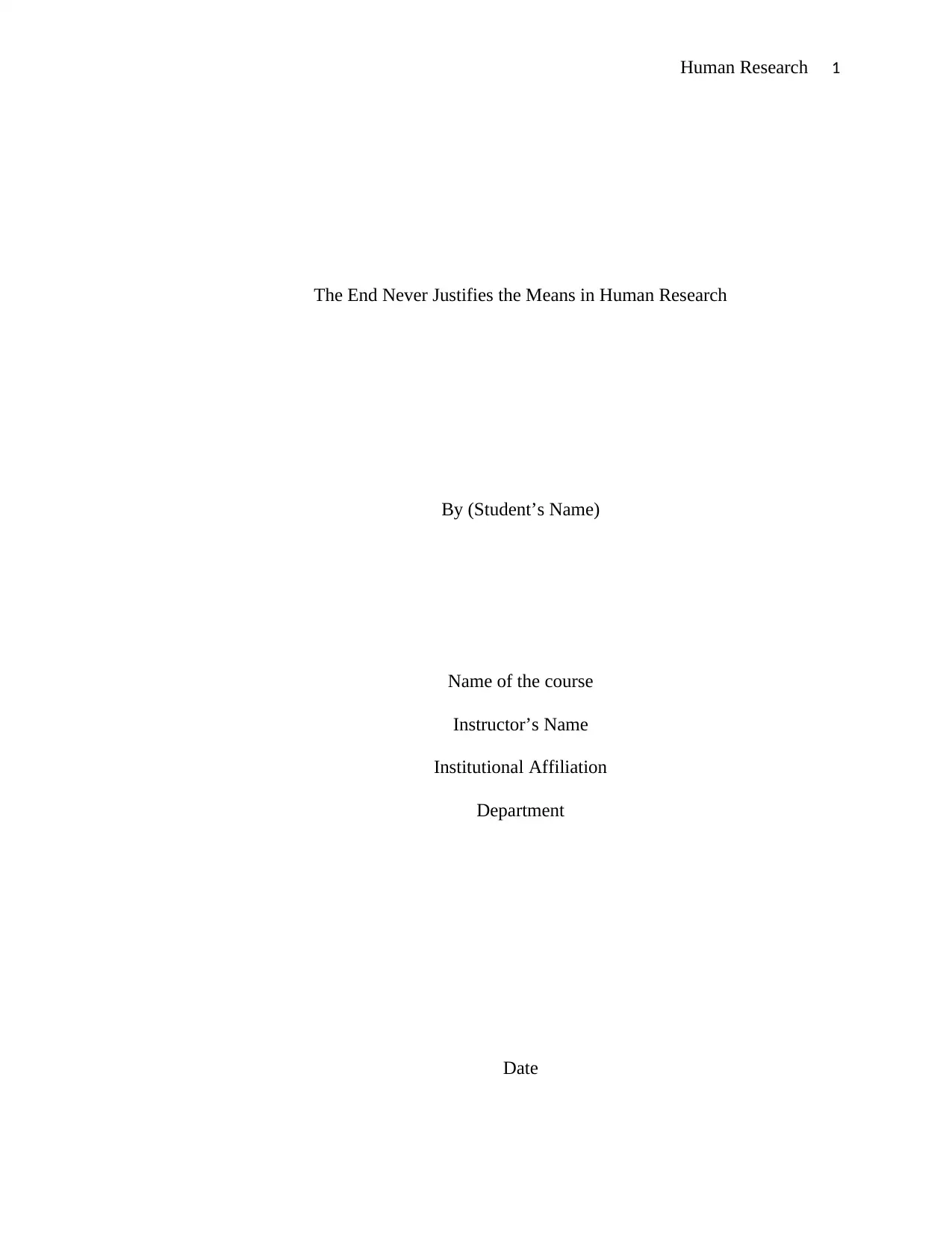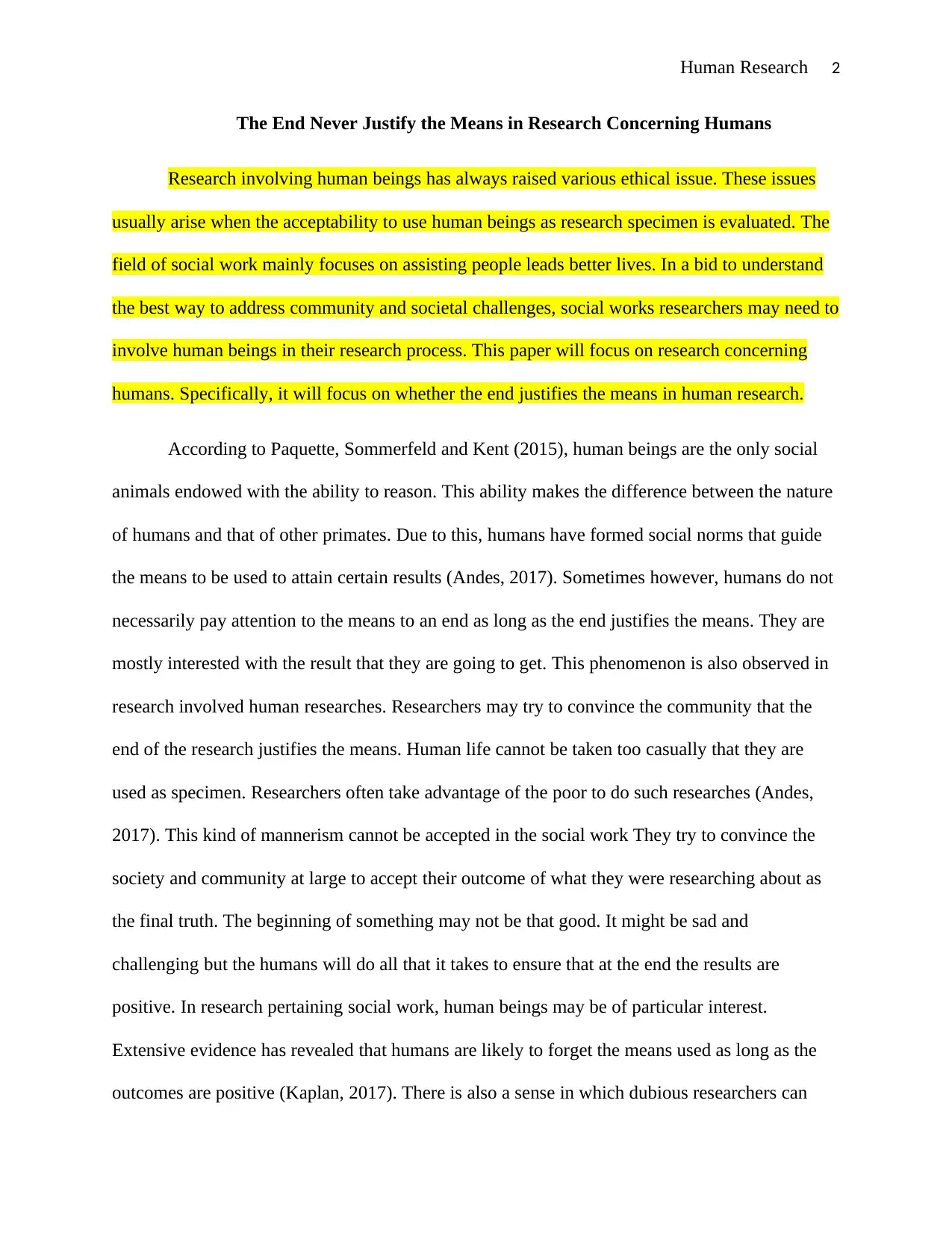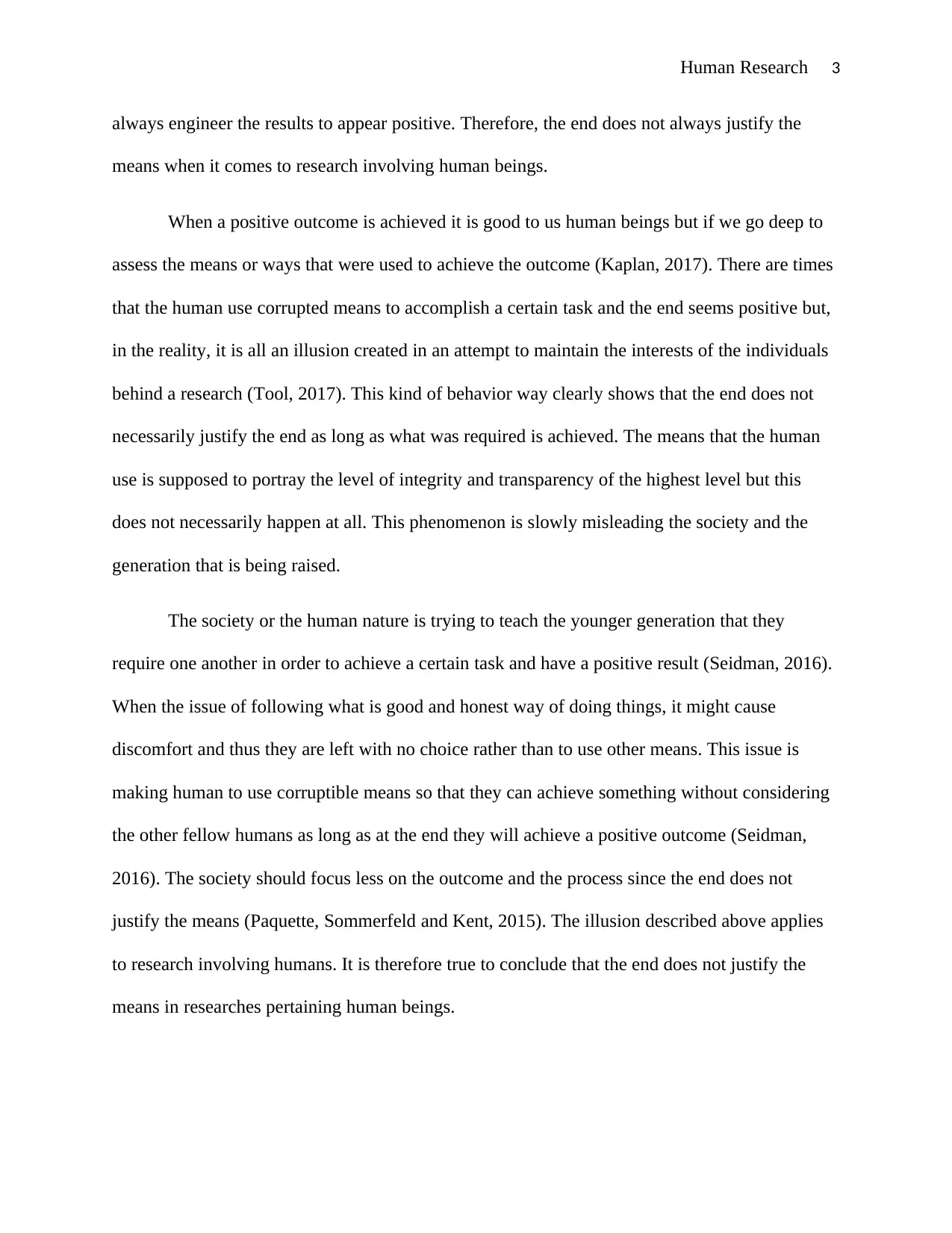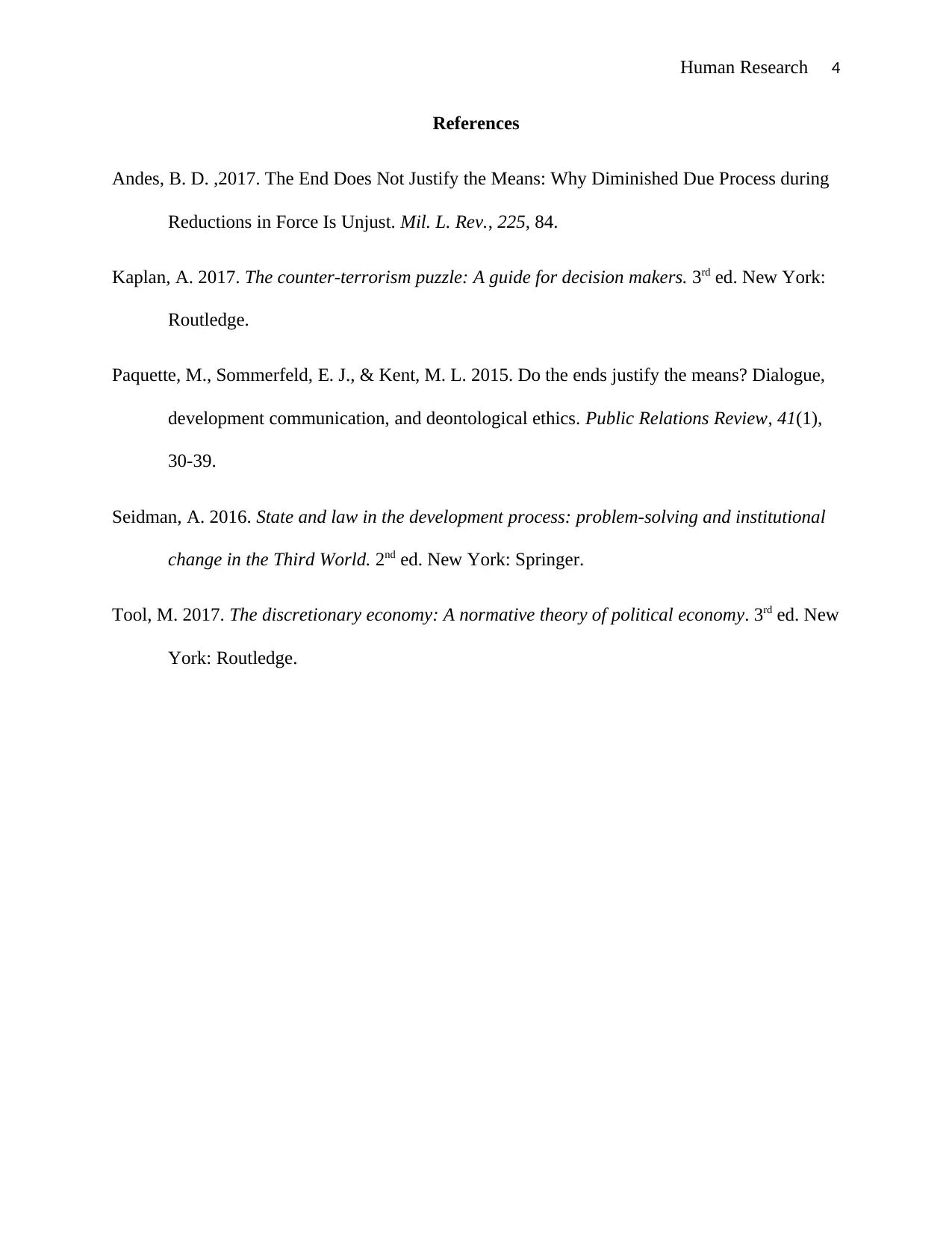The End Never Justifies the Means in Human Research: An Essay
VerifiedAdded on 2022/11/13
|4
|935
|467
Essay
AI Summary
This essay critically examines the ethical considerations in human research, focusing on the debate of whether the outcome justifies the methods employed. The author argues that the end does not justify the means, emphasizing the importance of ethical conduct and the potential for researchers to exploit vulnerable populations. The paper explores the social norms and ethical guidelines that should govern human research, highlighting the potential for researchers to manipulate results and prioritize outcomes over ethical practices. The essay references several sources to support its argument, emphasizing the need for integrity and transparency in research involving human subjects, especially within the field of social work. The paper concludes by reinforcing the idea that the means used in research are just as important as the results, and that the pursuit of positive outcomes should not come at the expense of ethical principles and the well-being of research participants.
1 out of 4











![[object Object]](/_next/static/media/star-bottom.7253800d.svg)